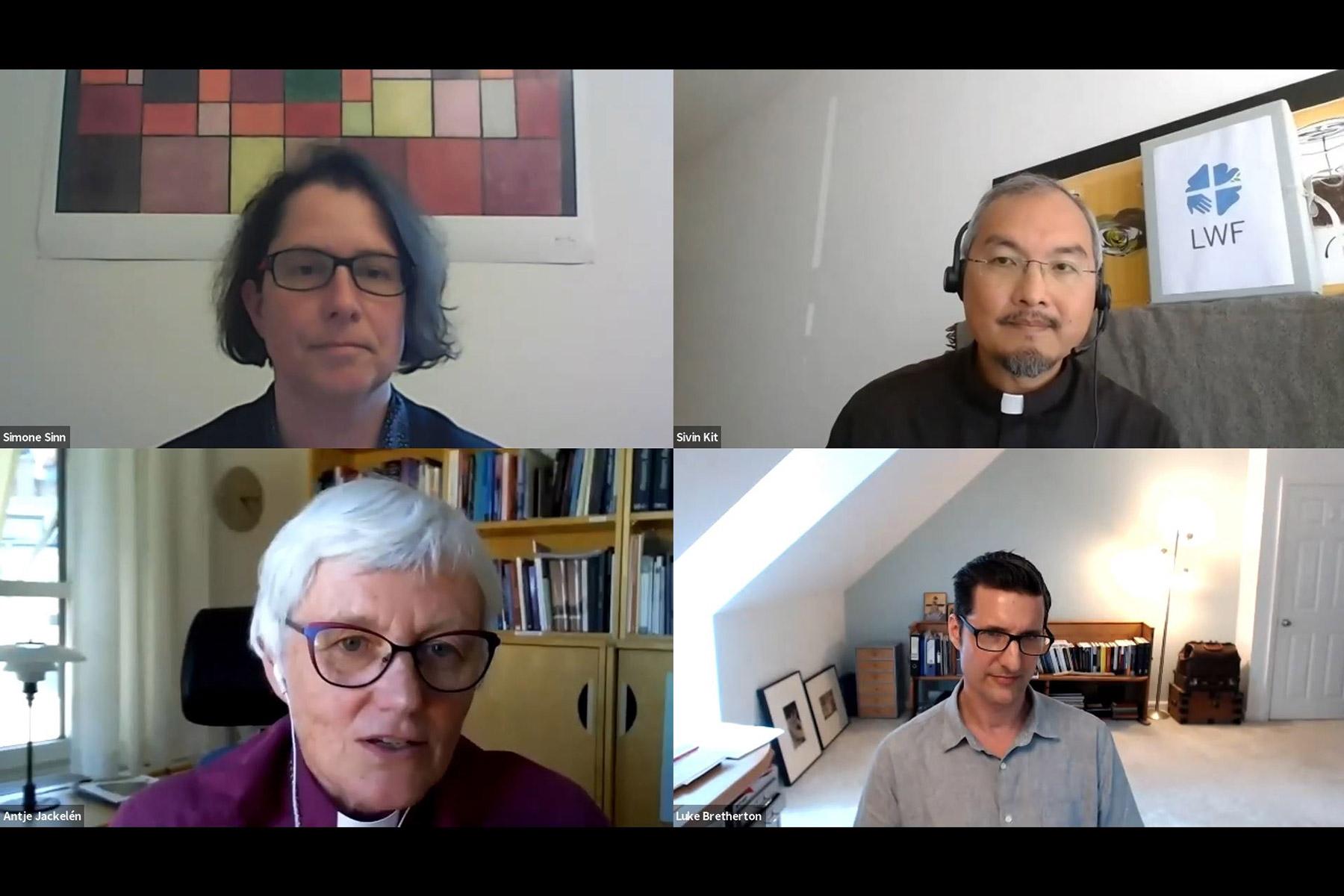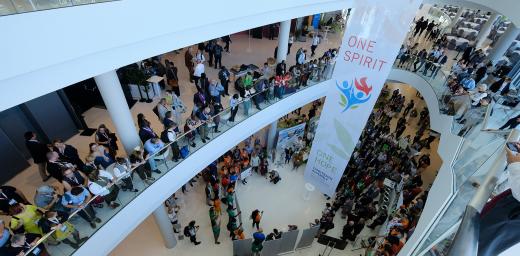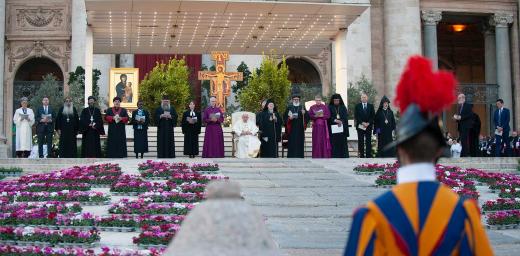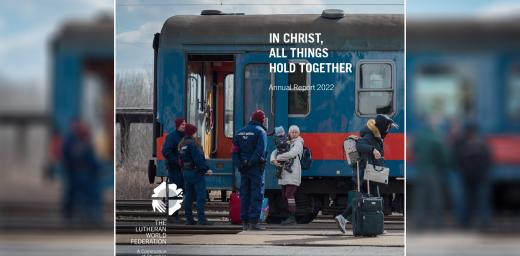Confronting populism: how can churches respond?

A screenshot of the webinar on the churchesâ response to populism. Photo: LWF
Webinar explores responsibilities and resources for Christians to resist exclusionary rhetoric
(LWI) - What do we mean by populism? Is it ever a good thing? Can democracy be manipulated? Is the church too political? How should Christians respond to the increasingly divisive and aggressive rhetoric of populist politicians? These challenging questions were at the heart of a wide-ranging online discussion on 25 June, jointly organized by the Lutheran World Federation (LWF), the Church of Norway and the Oslo-based think tank Skaperkraft.
The webinar, moderated by LWF’s Program Executive for Public Theology and Interreligious Relations, Rev. Dr Sivin Kit, was designed to help church leaders at all levels seeking to navigate a shifting political landscape that is impacted by the consequences of the COVID-19 pandemic. Speakers explored the responsibility of individuals and communities of believers, as well as the resources that churches can draw on to model gospel values of inclusion, compassion, justice and reconciliation.
Community organizer and professor of theological ethics at Duke University in North Carolina, Luke Bretherton began by defining two types of populism: a positive, democratic version which encourages equal representation and participation in the common good, as opposed to a negative form which seeks to advance personal interest while avoiding the checks and balances of democratic institutions.
Humility, courage, hope
Archbishop Antje Jackelén, head of the Church of Sweden and LWF vice-president for the Nordic region, shared her conviction that populism forms part of a broader explosive package, which she calls ‘the five Ps’, including polarization, protectionism, post-truth, and patriarchy. All these attitudes and behaviors reveal “a surplus of fear and a deficit of hope,” she said.
The Swedish archbishop, who regularly shares the church’s perspectives on radio, television and social media, said Christians can combat such negative rhetoric through “a theology of resilience, a theology of co-existence and a theology of hope.” Churches must be both humble yet courageous in reclaiming a voice in the public debate, she insisted, adding that the LWF has published a practical resource entitled: 'The Church in the Public Space’.
German theologian Simone Sinn, the World Council of Churches (WCC) Program Executive for Faith and Order and professor at the Bossey Ecumenical Institute, looked at the responses of Germany’s Protestant and Catholic churches to the increasingly hostile political discourse that divides politicians, communities, churches and families. Stressing that Christians must engage with these issues in new ways, Sinn said the churches’ contribution to the public debate is not just abstract ideology, but is drawn directly from their hands-on experience of working with refugees and other marginalized people.
Speakers noted that democratic values can never be taken for granted but must be cultivated and nourished by each new generation. The recent rise in exclusionary populist rhetoric is a consequence of our failure to tend and care for the common good, they said. If churches take seriously their belief in God’s free gift of salvation, they can confidently contribute to this task by sharing a vision of hope that is rooted in the values of inclusion, compassion, justice and love.
View the full webinar here





